By Paul Taublieb
I just wanted to find out what happened. My confusion started Friday, Nov. 9th, the day fire came to Malibu and Point Dume. I walked to the firehouse on the corner of Zumirez and PCH, the one we always felt would be there for us when the day came we needed them. The guys who would run up and down the street and came to be part of the neighborhood. The guys who said they would be there for us – and who once told my wife we shouldn’t buy a pump and hose since they would come and do a much better job. And we didn’t.
At first the firehouse appeared empty and dark, even though there was a fire truck inside. The hill above upper Zumirez was now ablaze as the fire crested the ridge, and a massive, special effects-like fire cloud loomed ominously above. The situation was looking very serious, PCH was locked with evacuees, and the word was it was 4-5 hours to Santa Monica.
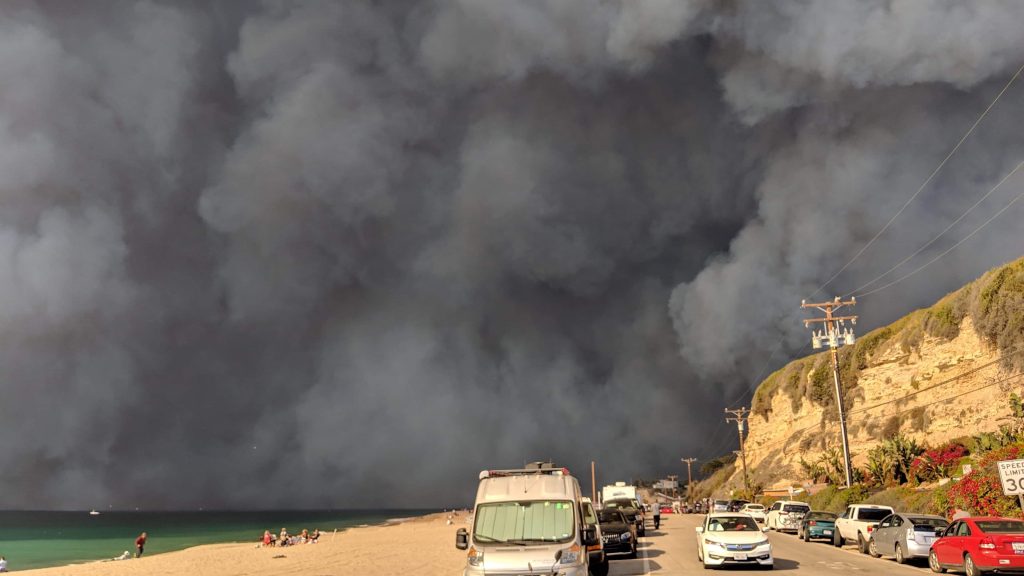
I knocked to no avail, but then saw a man hurrying through the shadows. He saw I spotted him and he reluctantly came to the door, opening it just a crack.
I asked what should we do given PCH was a parking lot and the fire was approaching. “It’s a mandatory evacuation, you should go,” he said. I asked about what would happen if the fire came down to the highway and we were in our car. “Don’t worry, it should go right over you,” he said. I looked at the trees lining the highway and imagined them on fire and falling down on the parked cars, so it didn’t seem like a good idea. I asked, “Should we go to Zuma?” He said, “Yeah, that’s a good idea, too.” What about going to the beach lot at the end of Zumirez? “Yeah, that is a good idea, also,” he said. “Can we count on help coming?” I asked. “I wouldn’t count on it,” he said.
Then he closed the barely-open door and disappeared back inside.
So when it was over – the days and nights of fighting fire — ill prepared and ill equipped, but my house saved, along with most on the street thanks to the adhoc Zumirez Drive (Fighting Alta Cocker Brigade) fire department (Mike Lansbury, James Respondek, Frank Kerze, John and Robbie Mazza, Mace and Mary Stanley and Randy Holland) — and after the days of lockdown, and finally repopulation — I felt compelled to brush off my old journalistic skills (I had written over the years from publications from The Washington Post to the Village Voice to Surfer, and now work as a two-time Emmy-winning documentary producer) I’d call the key players and ask: what happened? What went right and what went wrong with the agencies and politicians and city officials we pay to protect us?
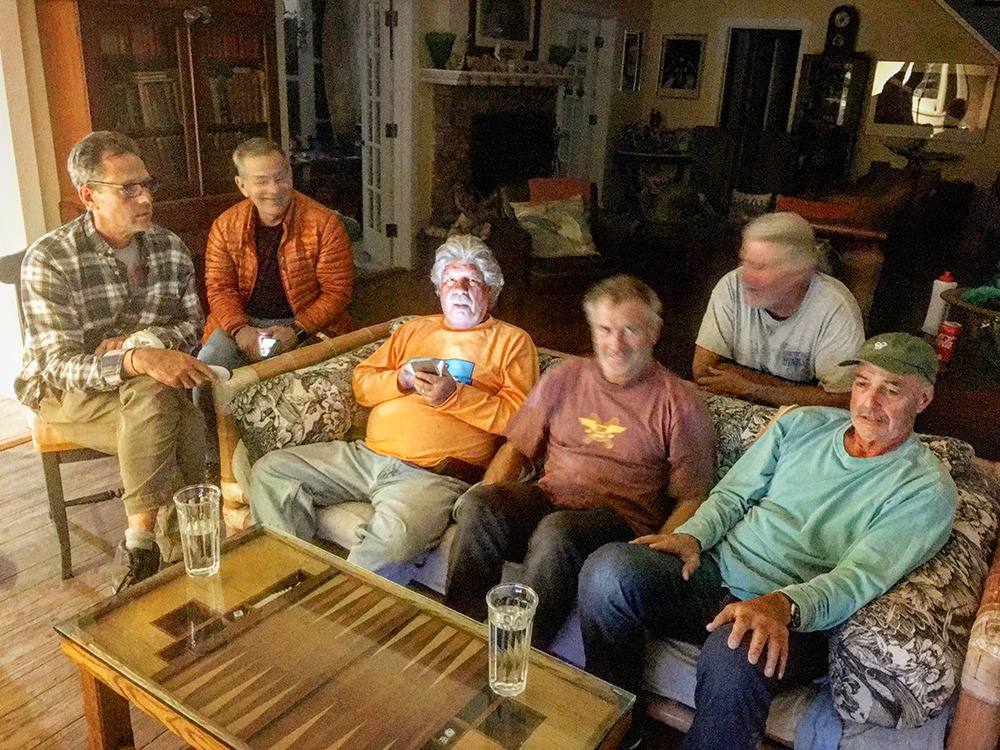
The first thing I learned, which in retrospect seemed obvious, is that ‘our’ fireman who lived on our corner were not ‘ours’ at all. They were LOS ANGELES Fire Department fireman. And the sheriffs were not ‘ours’, they were LOS ANGELES sheriff department. But I would also learn that the City of Malibu contracts with those entities for services and they are legally obligated to deliver those services, or so I thought. Because like so many others on Zumirez, the cavalry never came, not during the fire and not after the fire. Something went wrong.
And it seemed the best way was to start with the two people who would be in the best position to know: Rick Mullen, not only our mayor but currently an LA fire chief, and Reva Feldman, who as city manager is the defacto CEO of the city. With Reva, my first email directed me to Rick and no response for a face-to-face, though I remained hopeful.
So with 600 or so homes burned, and virtually no fire trucks seen in Malibu and around Pt. Dume at the height of the incident, I naively thought that Rick would be able to provide candid, expert analysis.
So what went wrong, I asked. Where were the fire trucks, I asked?

Rick, as many would do after him, wanted to focus on the size and speed of the fire, pointing out how it was the biggest and fastest in recent history, if not of all time. His opinion of how the fire was handled? “People did a great job, given the circumstances.” he said. He would, as other would do, also say, paradoxically despite the ‘great job’ that was done, “We learned a lot about how to do things better and different in the future.” So you can do a great job, I guess, but that apparently includes doing things ‘greatly better’ in the future.
But what about the lack of response in Malibu and around Point Dume?
“I can’t speak for the fire department. If you’re interested in their performance, speak to them,” and wouldn’t comment further. Any insights into how the fire was fought? “No,” he said, “and no further comment as you need to talk to them,” he added.
What about the lack of support to the people who stayed behind and ignored the mandatory evacuation? “Direct those questions to the fire chief and sheriff. I have no other comment except a mandatory evacuation is designed to provide ease of movement and operation of emergency forces, and anyone not evacuating impacts that. If the fire department calls for evacuation, they know what they’re doing – evacuate.” Apparently mandatory evacuation is good for the goose, but not for the gander (though I’m not sure what a ‘gander’ is, I must confess). Rick’s son chose to stay behind and fight the fire.
When I did talk to an LA fire chief about this, he commented, “I can’t speak to an individual case, but the fact is anyone who stays behind is putting the life of a fire fighter at risk. It doesn’t matter how prepared you are, you can get in trouble. Firefighters die in fires, so anyone who chooses to remain behind is putting their own life at risk, as well as that of someone who might have to come to rescue him.”
So according to Rick, as best I can figure, mandatory evacuation is mandatory and should be followed, unless it’s someone in your family defending your own home.
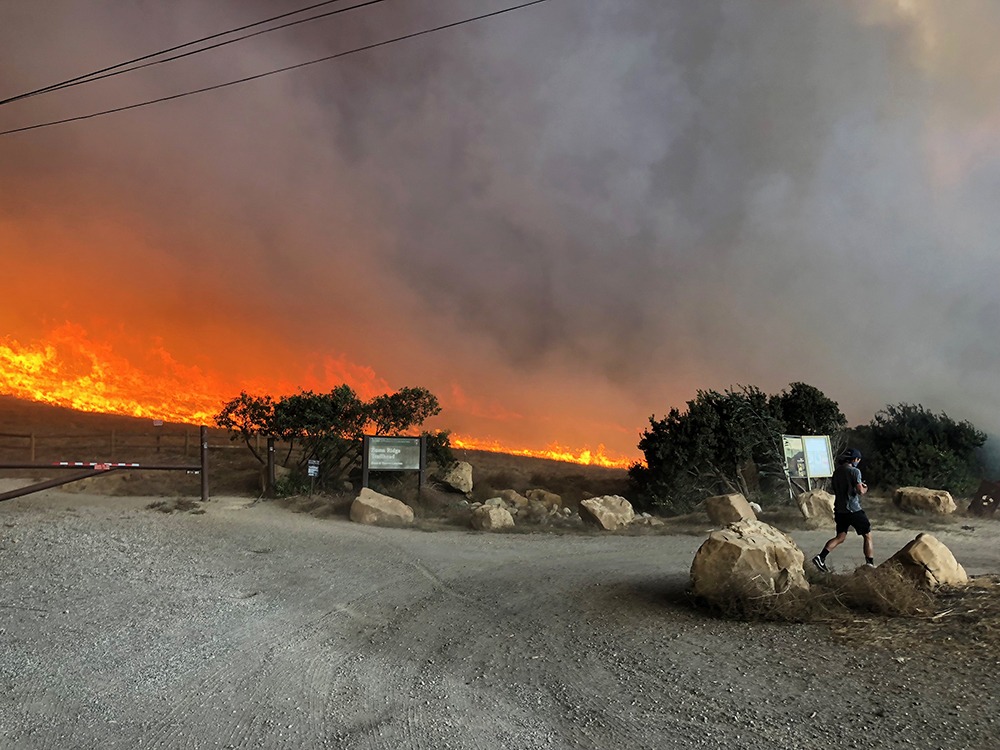
After first saying hearing from the community and communicating his priorities, Rick was clearly anxious to get off the phone. But I had few more questions.
Were resources diverting en masse to Pepperdine, as I would later learn they were? Our fire chief cum mayor would only say, “They have a long-standing policy of sheltering in place, but I have no other comment.”
I also asked our mayor about the CERT program. “I’m very familiar with the program, and am an enthusiastic supporter,” he answered enthusiastically, finding ground to talk about with confidence. “It’s a great program.” But when I told him that I was heard from the head of Malibu CERT, Richard Greaves, that much of the contents of the containers were expired, and a lot of the non-expired contents were not what was actually needed by those behind the blockade, he said, “Was CERT used effectively? I don’t know. Don’t expect me to know what’s in every nook-and-cranny in what the city has. I don’t get into that kind of minutia. Okay, maybe it’s less than perfect, I don’t know.”
At this point, he was accusing me of trying to ‘spin’ the story – “I know what you’re doing, you’re going to write whatever you want” – but I told I was just trying to get some answers, and had a couple more questions. He reluctantly stayed on the line.
What about the massive traffic jam on PCH during the evacuation: “Great question – but if you want an answer contact someone from the sheriff department. I don’t know the answer for gridlock.” But then he added, “But yes, it’s something we need to look at in the future.” He wouldn’t elaborate.
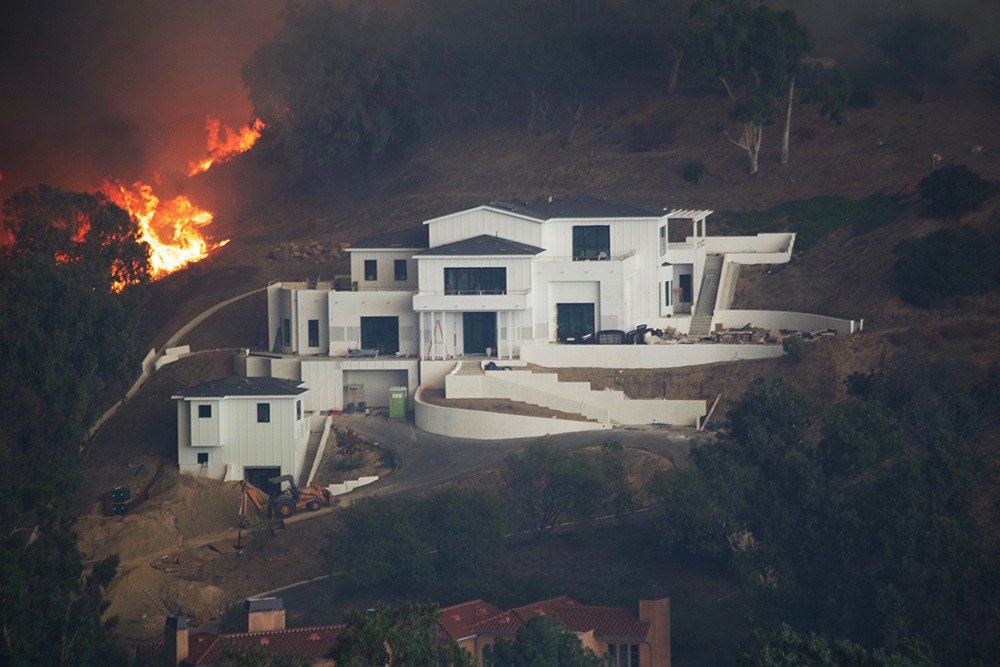
Lastly, I asked him why, at the time of our interview, city hall was still closed for safety reasons, but without any caveats the roadblocks had been taken down and people could freely return to their homes. How could it be too dangerous to open city hall – which wasn’t directly impacted by the fire — yet it was okay for residents to return to their homes? “No one is working at city hall until it’s deemed to be safe. In terms of repopulation, we’re just saying it’s okay to return to your homes, not that it’s safe. If you have any concerns, contact your insurance company.”
Then he was gone.
I really wanted to talk to Reva, and sent her another email. No response. But I did get through to Susan Duenas, Public Safety Manager for the City, who was quite willing to chat. One question I had was why wasn’t someone from the city on-site, in Malibu, during the crisis and the aftermath? Many people felt that you can’t really manage something like this from afar, let alone know what was happening and be able to share up-to-the minute info.
She said they had no choice as city staff. A mandatory evacuation order had been given, and as far as she knew it was a legal order that came from the city attorney, Christi Hogin. But what about all the people who stayed, without repercussions? Clearly, as the mayor was well aware, ‘mandatory’ is not ‘mandatory’. And wouldn’t it have been great to have someone on-site, particularly given city hall had electricity, water and internet and never was threatened?
“If the city says go, then we have to go,” she responded. “If anyone got sick, then they would look to the city.”
What about getting food, water and other relief goods past the blockade to the residents who stayed behind? Didn’t the city have an obligation of some kind – maybe making the dramatic relief-by-sea and paddle-through-surf unnecessary? A city council member would later rail against the sea-relief efforts. Lifeguard boats actually tried to stop it. And yet a couple of U-Hauls escorted in and out would have solved this?
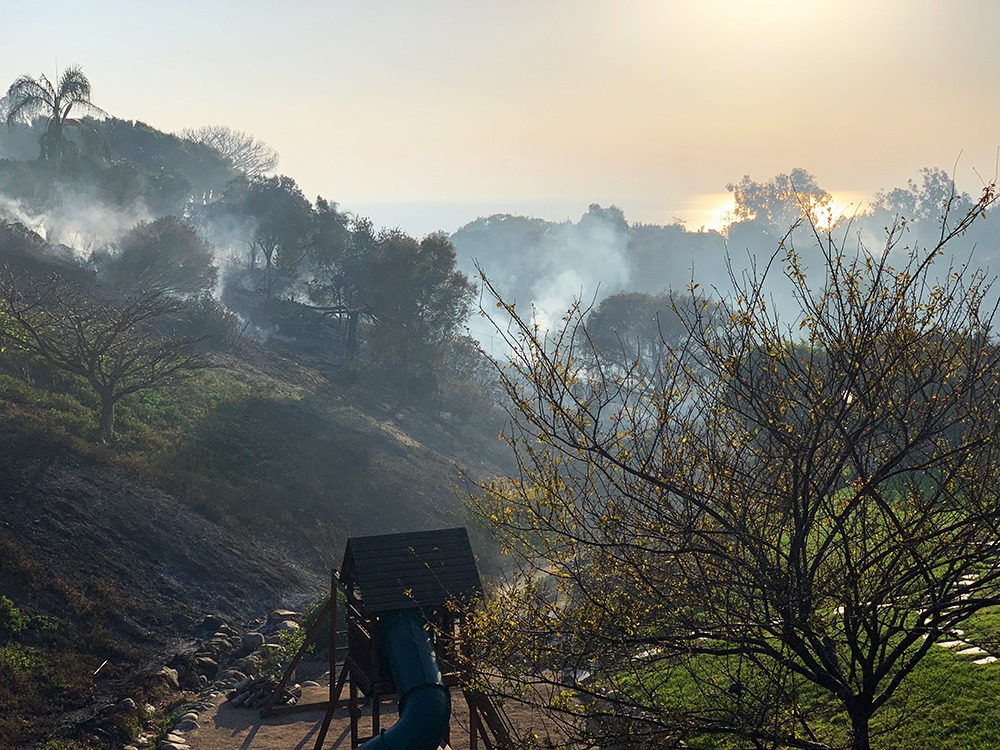
“We were forbidden because we would technically be breaking the law, and we have to abide with the sheriff’s department since it was a mandatory evacuation,” she said, even when the purpose was to help people who didn’t ‘mandatorily’ evacuate? Also, she said, “FEMA and the state look for reasons to deny money. If they can show you are not doing things by the book, they will deny relief dollars, and have very strict procedures. If we had broken the rules we might not get relief dollars.”
This seemed logical until I later learned that over in Thousand Oaks and other areas impacted by the fire, FEMA itself was “disobeying” the ‘mandatory’ orders in those areas and providing assistance, and when I spoke to a high-ranking official of a neighboring city who has dealt extensively with FEMA, he said, “That’s ridiculous. You’re not going to be penalized for helping citizens in a safe and responsible manner – it’s exactly what FEMA is supposed to do, and they would support a city that did this. And we know it was safe to drive up PCH from Santa Monica to Pt. Dume Marine Science or even to Zuma – they just would have had to take on the sheriffs to make it happen, and they clearly didn’t want to. It’s just the way Malibu operates – a failed bureaucracy, from the top down.” More from him later.
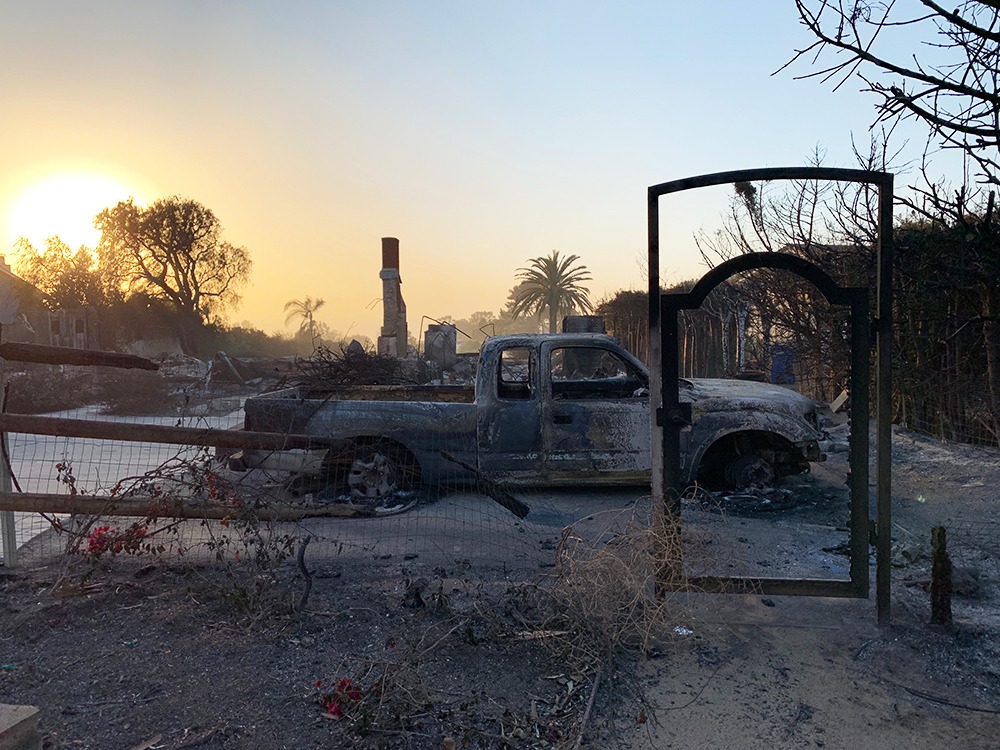
Susan did explain, “You have to understand, it was a challenge from our side. We were working 24/7, remotely, at home with no makeup and in our pajamas.”
I also asked her about the parking-lot-on-PCH evacuation fiasco. “Oh, I’m really glad you asked that question. It was something we spent a lot of time discussing, but the way things happened just wasn’t something we anticipated in our planning. You would think opening one or both northbound lanes heading south would be possible, but there were many agencies involved and it’s really complex, and it’s something we need to think much more about beforehand if there’s a next time.”
Not a bad idea, I thought. Think about evacuation from an area with a history of fires more beforehand.
But still, I could tell Susan really did care and had tried her best. I needed to hear from Reva, who actually runs the city under the direction of the city council. I reached out to Matt Meyerhoff, the Public Information Officer for Malibu. He wanted to be helpful, but said, “It’s up to her if she wants to talk to the media. She’s under no obligation to do so. I’ll ask her again.”
One city official who would talk was city attorney, Christi Hogin. I asked her if Reva had an obligation to talk to the press. “All government is about communicating to constituents, and I don’t see how that happens without the press,” said Hogin. “But I don’t think Reva, or anyone else, has a legal obligation to speak to the press.”
And legally, I also wondered, what does ‘mandatory evacuation’ actually mean? “That’s an interesting question, and I’m not sure,” she opined. “I can tell you this – no one is going to arrest you for not evacuating.” (Note: later research revealed that it is a rarely, if ever, enforced misdemeanor, for not abiding by a mandatory evacuation order, but Is at most a small fine).
Regarding what was happening the days after the fire, Christi had some interesting insights as she was working out of the temporary offices set up in Santa Monica. “Priority for the city wasn’t to get relief to the people who stayed behind but reorganizing population. Hey, we saw on the internet they were actually doing pretty good, so we weren’t putting in any effort to try and create a supply line.”
“Our focus was to end the blockade, for repopulation, not relief. People were anxious to get back in, and our efforts were focused on ending the evacuation,” she added. “We wanted to get it open for everyone, that was the focus of our skeletal staff – not worrying about relief. ”
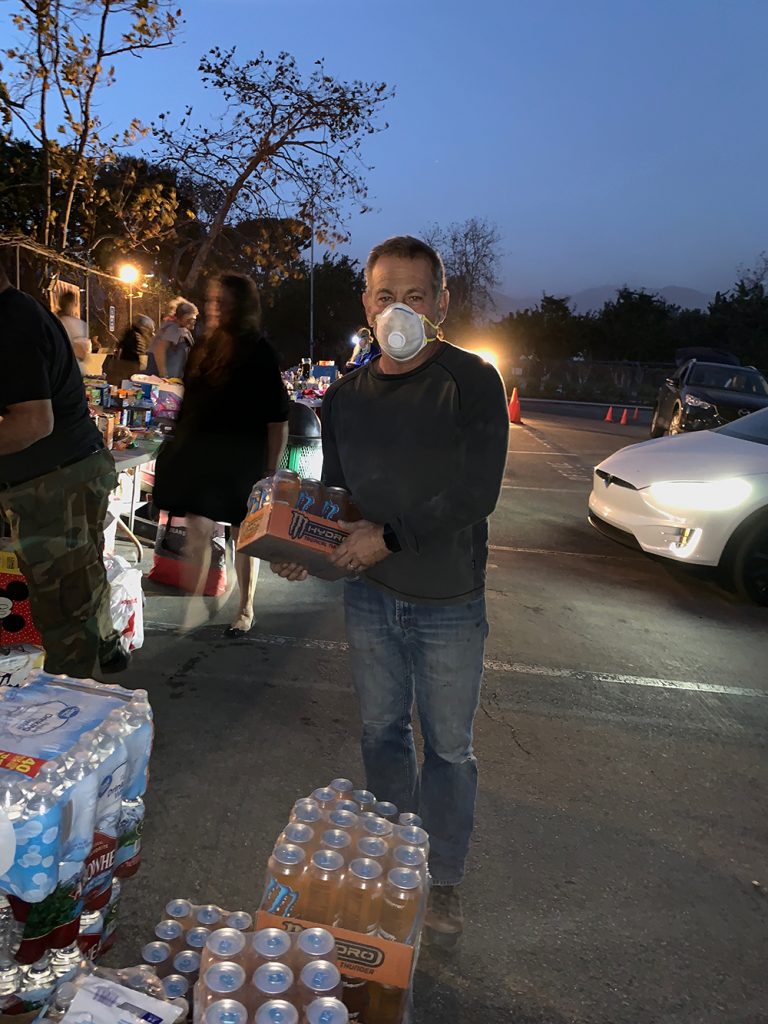
She also added one intriguing concept, and conundrum. “The city is responsible for providing fire and police protection, that is an obligation we have and we contract for that with the county.” So if the city is responsible, where were the fire trucks that the citizens paid for, even if somewhat indirectly? “All I can say is Cal Fire took command, and they have their own criteria for dealing with the situation, particularly with a fast-moving fire like we had. Once an evacuation is declared and it’s an emergency situation, the city really has no role in that decision making, even if we’ve contracted with them.”
“There were plans, and I can’t understand why the right people who had the right equipment refused to provide aid,” she added, referencing the many accounts of fire trucks sitting idle. “In the future we have to figure out a way to have faith in each other, need to understand the thinking. We shouldn’t be defensive about it, we need to learn from it.”
But when I asked where were the fire trucks, and what about the problems with the Sheriff Department, her only answer was, “Cal fire took over command, and we followed the direction from them, the LA fire department and the Sheriff Department. We may hire the fire department and have an obligation to provide those services to the community, but once there’s a fire we have no control of the decisions the fire department makes.”
Kind of a curious conundrum. The city is legally obligated to provide fire services to the citizens, but once there’s a fire or other major event, the city has no ability to direct how they execute their services.
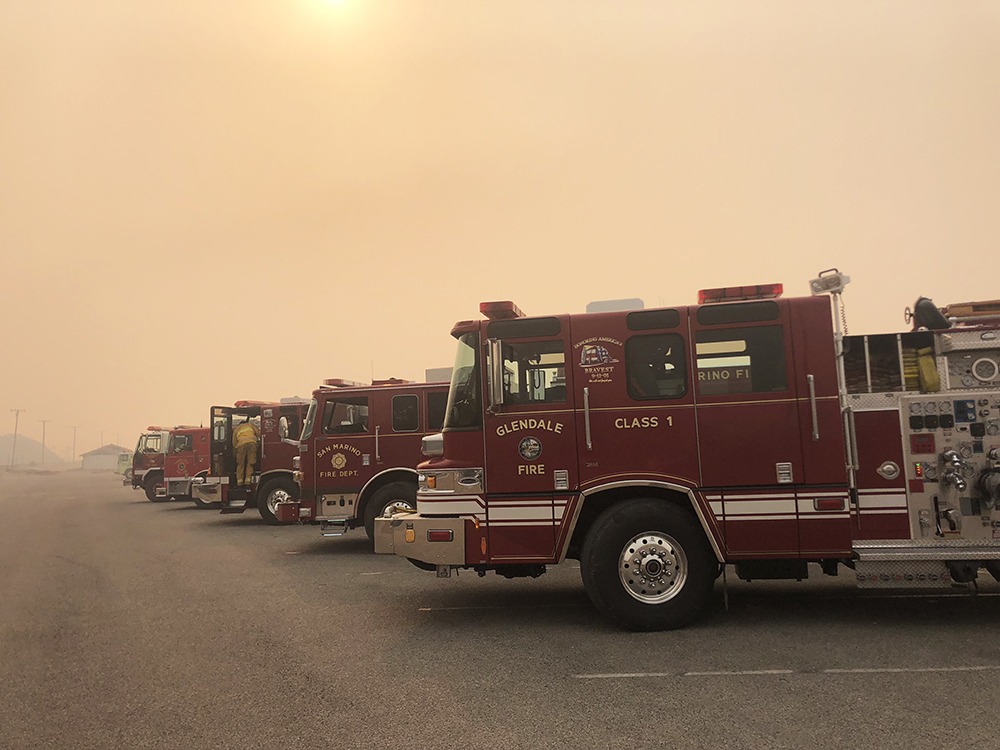
With still no word back from Reva, my editor – the indefatigable Cece Woods, to whom I am indebted for putting me under the auspices of The Local for this crisis – did connect me to someone I confirmed was a high ranking official at a neighboring city which has suffered similarly to Malibu from the Woolsey fire.” He had quite a bit to say, even though he had to do it anonymously.
“In terms of the city of Malibu, speaking as someone who is a professional in city management, it was a total fail. Perhaps even negligent,” was his opinion.
“Now I have big love for the city of Malibu and have many friends there, and being in my position in my city government, a lot of people called me to find out what was going on, because they weren’t hearing anything from the city. And that’s inexcusable mismanagement. And if you’re asking my opinion, you have to question the job Reva did, because she’s in charge, and any problems are her responsibility,” he began.
“Where do I start? If city hall is not being used, why not open it up and use it as a shelter? People need a roof over their heads, and there was full electricity and internet. My city was open the whole time, and we had flames a block away, which never happened near Malibu city hall.
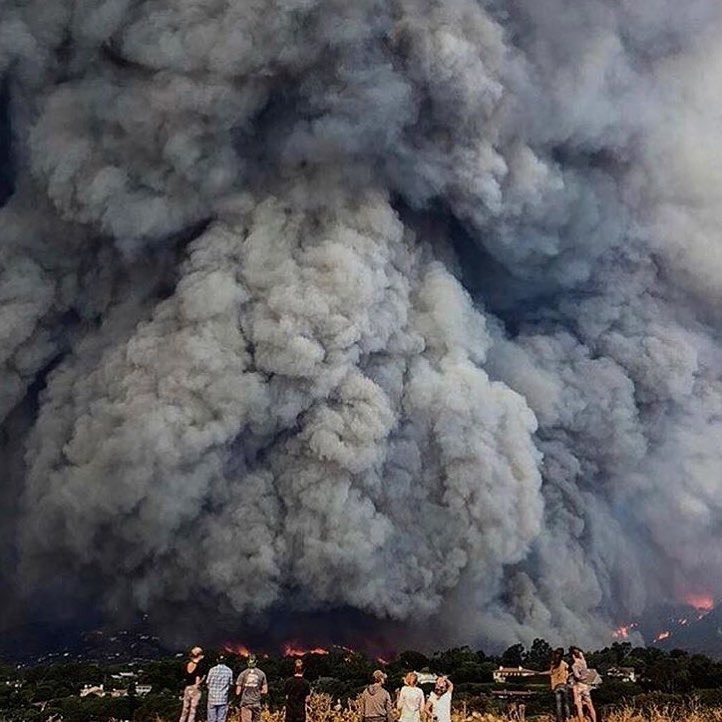
“Let me tell you about the evacuation – it was damn lucky only three deaths, not 300. It’s ridiculous they hadn’t anticipated the need to open all lanes south – that’s the responsibility of the city manager to do disaster planning – and this wasn’t hard at all to have gamed-out as a possibility. Our city manager has actual hands-on experience during a disaster, and that’s what is needed, and what Malibu didn’t have,” he explained.
“What Malibu also needs,” he continued, “is a public works department that can be onsite during a crisis and assist with knowledge of the area – which people from the outside can never do. And what Malibu needs is what we had – a city manager who is on-site, or at least coming every day to see what’s going on and manage a crisis with first-hand knowledge, not working remotely, because that’s the only way to really know what’s going on, and be responsive to the needs of the citizens,” he concluded.
Still trying to get in touch with Reva, I did hear back from Matt Meyerhoff, the Public Information Officer for the city, with no update on her speaking to me. But he reiterated Duenas’s position.
“We were told it was illegal to bring relief supplies, so we focused on repopulation, not resupply,” he explained. “We have to abide by what the sheriff was telling us, and advice of council,” even though city attorney, Christi Hogin wouldn’t confirm she had given that specific advice, Meyerhoff wouldn’t exactly confirm who directed things overall, either, as if maybe there was someone’s name he didn’t want to mention who might be culpable.
Meyerhoff also was both oddly proud, and also a little contrite, about the effectiveness of communication with the citizens, during and after the fire. “We put out constant updates and I really felt we were doing our jobs,” he said, “but I have heard people felt there wasn’t enough info. But hey, it was really hard since we weren’t on-site because the sheriffs said we couldn’t be there. Something to do better next time!”
“Matt Meyerhoff? Never heard of him,” began LA County Fire Chief Tony Imbrenda,when we began what was a long and disturbing conversation. “The city is supposed to send a PIO (Public Information Officer) to our command post and embed with our team to roll out the same message across all media to keep a unified message and have accurate information. The problem is people have egos and did their own reports that weren’t vetted. And there was no one from Malibu at our command.”
“I was at our command center the whole time, gathering information and sending information out,” continued Imbrenda. “Look, the first thing you have to understand is the size of this fire, over 14 miles wide, maybe up to 20 miles wide, with winds blowing as high as 85 miles per hour.
“And many of the strike teams were not from the region as we had to backfill after sending resources north,” Imbrenda explained. “So you had guys not knowing what to do is because without cell service –down because electricity was cut off – they had to try and go by Thomas Guides, and given the terrain there’s a big chance of entrapment and there not being an egress route, especially given the geography,” Imbrenda said, explaining why the response on-site seemed so scattered and hesitant to respond to requests from locals during the event.
“In the case of this fire, fire fighters were driving over downed power lines, had to do it constantly to try everything, which we never are supposed to do because we were trying. But I have to admit some guys were from out of the area and if they were asked to fight a fire or come to someone’s aid and didn’t, which I understood did take place, it’s probably because they were from out-of-town, were going by a Thomas Guide, and simply didn’t know how to respond properly. The fire department functions in a military fashion, and without coordination and proper orders they can’t, and won’t, just go on their own.”
“So yes, there was a breakdown somewhere, and it’s something we want to get to the bottom of,” he admitted.
He wanted to stress one point: “We will go out and risk our lives, but if you want to be safe and you want fire fighters to be safe, the one way you can guarantee you will survive is simple. Evacuate.”
When I mentioned there was, um, a bit of a problem with the evacuation, he acknowledged it. “I personally ordered evacuation over Twitter, and told all the residents to leave the area, and said this on all local media as well. But in retrospect, what you had was paralysis by analysis given what happened with the traffic.”
“I would have immediately opened all four lanes to get people out of there. There’s no excuse for people sitting there for that long,” he added.
I mentioned my experience of being told to get in line and evacuate, with the advice from a firefighter that if the fire came down to the road it would go over us. “Well, we have some people who are not very bright, and some of the people manning fire stations might not have been actual fire fighters. But I’m horrified that traffic situation took place – it could have been a disaster, a highway of death, and if anyone tells you differently, they don’t know what they’re talking about.
“The bottom line is we got lucky, very lucky, that hundreds of people didn’t die waiting to get out of Malibu,” he stated matter-of-factly.
He did add that “Part of the problem would have been eased if people left earlier when the word first went out. But everyone is conditioned that Malibu and Pt. Dume never burns, so they waited and then all left at once. But that’s no excuse for how it was handled – and the tragedy of what almost happened.”
I backed up and asked him when he said the whole ‘area’ was under mandatory evacuation, did that in his mind include Pepperdine?
“They should have evacuated, as far as I’m concerned because the only way to insure survival and safety is to leave. For people and firefighters. But the decision was made to shelter in place. I even asked another fire chief about this, as I couldn’t understand why they stayed. It meant lives were at risk, it’s as simple as that.
“I was told that a high level politician had made a call, that the school said they didn’t have resources to get everyone out, and the fire department was told to send resources.” Imbrenda explained.
“That meant five battalions, with each battalion being five fire-fighting trucks, plus a command vehicle” and some level of air resources, as anecdotally myself and others observed numerous helicopter runs over the campus dropping liquid (not just refueling or picking up water)”.
(Note: This was confirmed by Point Dume Bomber, Keegan Gibbs, who said, “I heard it over and over on the LA fire radio, which I was monitoring, for over two hours on Friday – send resources to Pepperdine. Life over property. Go now.”)
“Why those evacuations didn’t occur? All I can say is I agree it’s not fair, and I would like to know the discussion between the university president and our command and how that decision was arrived at. It’s a valid question – why that evacuation was not done. It’s a legitimate question that needs to be answered,” he said. “Why there was a lack of ground transportation, I find that unacceptable because it put lives at risk. The potential to move those students with vans or buses wasn’t there, but should have been.
“With students sheltering in place, there was no way we were going to let them die, but it’s a hard question to answer – why were so many resources directed to the university and what do we tell a resident who lost their single family dwelling because of it, what do we tell them?” he asked in conclusion.
I did some other research into the Pepperdine situation. Of course, I tried to reach Pepperdine for comment, but except for one short email, was denied any opportunity to talk to anyone, including the president’s office, where I left a number of messages. For an institution that claims to want to be part of the local community, it was sadly ironic they wouldn’t talk to The Local.
But this is what I did learn from eyewitnesses and other sources. On Friday afternoon of the fire, students were advised to “leave if possible,” which many, if not most, did. Then sometime late on Friday, the remaining students were told they couldn’t leave and should “shelter in place.” According to the university this was for their own safety, that they had no means of getting these remaining students out, that they had nowhere for these students to go.
According to a cynic, they were guarantees that, as fire chief Imbrenda said, “by them remaining, we were going to defend the University, even at the expense of single family homes.” Or to put it crassly, you might take some liberties and say they were human shields for the University property. One might.
A key question is how many students were remaining. According to a written statement by the University, it was between 1200 and 1500. However, according to the school’s own newspaper, the number was likely closer to 500. And of particular note, by Saturday morning – while homes in Malibu and Point Dume continued to light up and burn, and the 5 battalions remained at Pepperdine – the number of students on campus dwindled to as few as 100, according to eyewitness reports. So all day Saturday and all day Sunday, the university and a handful of students were protected, but Malibu burned. You can argue, as the university does, that there was nowhere to put these students, that they couldn’t just throw them to the wind on their own, and they say there was no way to get buses or vans to evacuate them even though, as I experienced on both these days with my press pass, it was clear and open sailing from Pepperdine down PCH to Santa Monica, with neither obstruction or threat.
Regarding the repopulation, Imbrenda said, “The check points should have been open faster and the whole situation handled better. There was a communication problem between so many entities, compounded by having guys at the checkpoints not being from the area. They always say it’s the fire department that keeps people out, but it’s not true. You have Edison, you have police, you have other entities. They all want it closed as long as possible. But I acknowledge the process was slow and cumbersome. I tried to relieve that, which would have alleviated a lot of suffering, but I didn’t have that power. “
Imprenda promised to learn, do a true post mortem, and do things better in the future, and at the very least, I believe he is sincere in his desire and intent, though whether things actually change remains to be seen.
I also found a sheriff with long standing experience in Malibu who asked to remain anonymous, and he put it this way, “It was an old fashioned cluster fuck. First when the fire started, besides how big it was, it crossed jurisdictions, so you had all kinds of brass trying to run things. Then what we call the ‘mother ship’ came in with the top guys and it became a bureaucratic mess. By the time the order came to evacuate, it was inaction by committee – too much talking and not enough action.”
With still no word from Reva, I reached out to Skylar Peak, who I’ve shared a few peaks with in the water at Dume. He was happy to talk about his role, which some found controversial, and said he would also try to get Reva to get on the phone or have a meeting.
“Look,” he began, “this was the biggest, fastest moving fire in history. And I think the city did a fantastic job given the circumstances.” During the period when the lockdown was on, Skylar drew attention for seemingly not supporting the influx of food, gas and survival supplies, though in our conversation he downplayed reports of being involved in trying to stop the relief effort. “I wasn’t against it, I was just very concerned about the gas being brought in as my main issue,” he said, not really addressing the other claims, with numerous accounts of him supporting the abbreviated effort by the lifeguards to block the effort to circumvent the blockade. But specifically, it was the gas, he said, was his concern: “It wasn’t being stored or managed properly, and imagine if the gas had spilled into the ocean!” he explained.
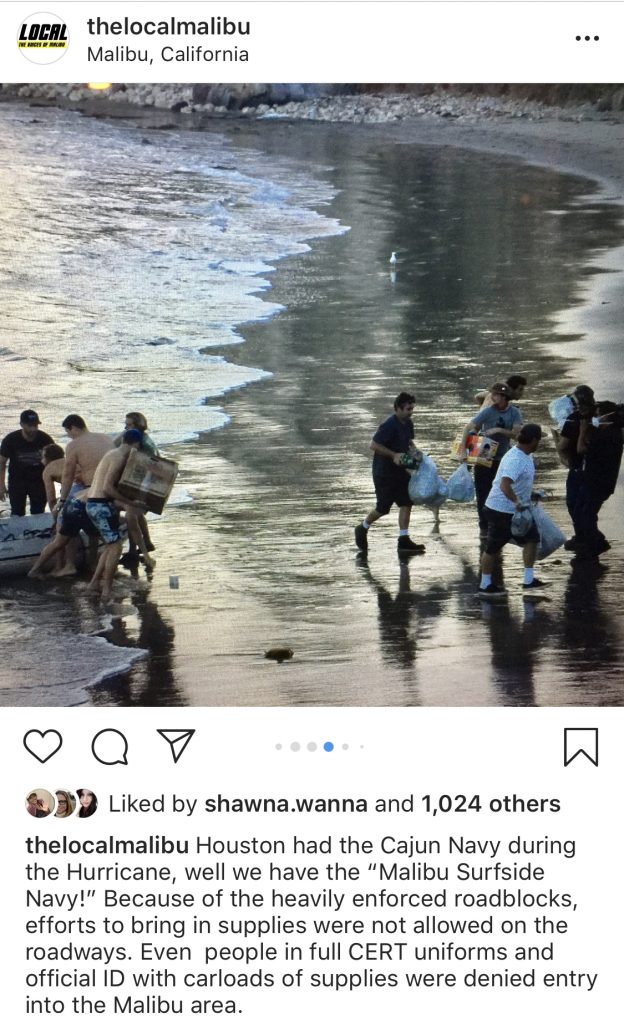
As someone who came in and out during the blockade, why, I asked, didn’t he organize a truck of relief supplies so the water mission wouldn’t have been necessary. “If you choose to stay behind, you need to be prepared to take care of yourself, and it’s not the city’s responsibility to help people who didn’t properly prepare, as I did.”
I asked him for help in sitting down with Reva, and soon afterwards, I received an email from her. I should send her a list of questions, and then she would respond in writing, she asked. I told her “No, I don’t do journalism that way. It’s not a take-home test”.
Skylar said he would see what he could do about a face-to-face.
While waiting, I spoke to a local volunteer sheriff, who stayed behind the whole time on patrol, and volunteered to talk as long as no name was used. This person had some interesting observations.
“I’m on the radio the whole time, hearing everything,” the volunteer began. “And I can tell you it was chaos, a catastrophic breakdown of communication. Firemen were asking for orders and not getting them. There was no information as to where to go, what houses needed help and where fire engines were supposed to go. I believe these out-of-town firemen wanted to help, but they weren’t getting orders or directions and they weren’t just going to freelance – particularly when they didn’t know the terrain.
(We on Zumirez, btw, experienced this first hand during the fires. An fire truck cruised down our street as we attacked hot spots in the ravine behind houses on one side of the street using garden hoses, often with a weak stream of water. Here was deliverance, we thought. But when we asked them to come down in the gully, whatever little enthusiasm this out-of-town truck had immediately evaporated. Nope, they explained they don’t go down into gullies or ravines they don’t know as a matter of policy, and no amount of explaining it was really just people’s backyards and you couldn’t get trapped, was effective. They simply got back in their truck and drove away, leaving us slack jawed, disappointed, feeling left on our own and more resolved than ever to keep fighting fires and saving each other’s homes on Zumirez; 28 houses were saved, only two were lost.)
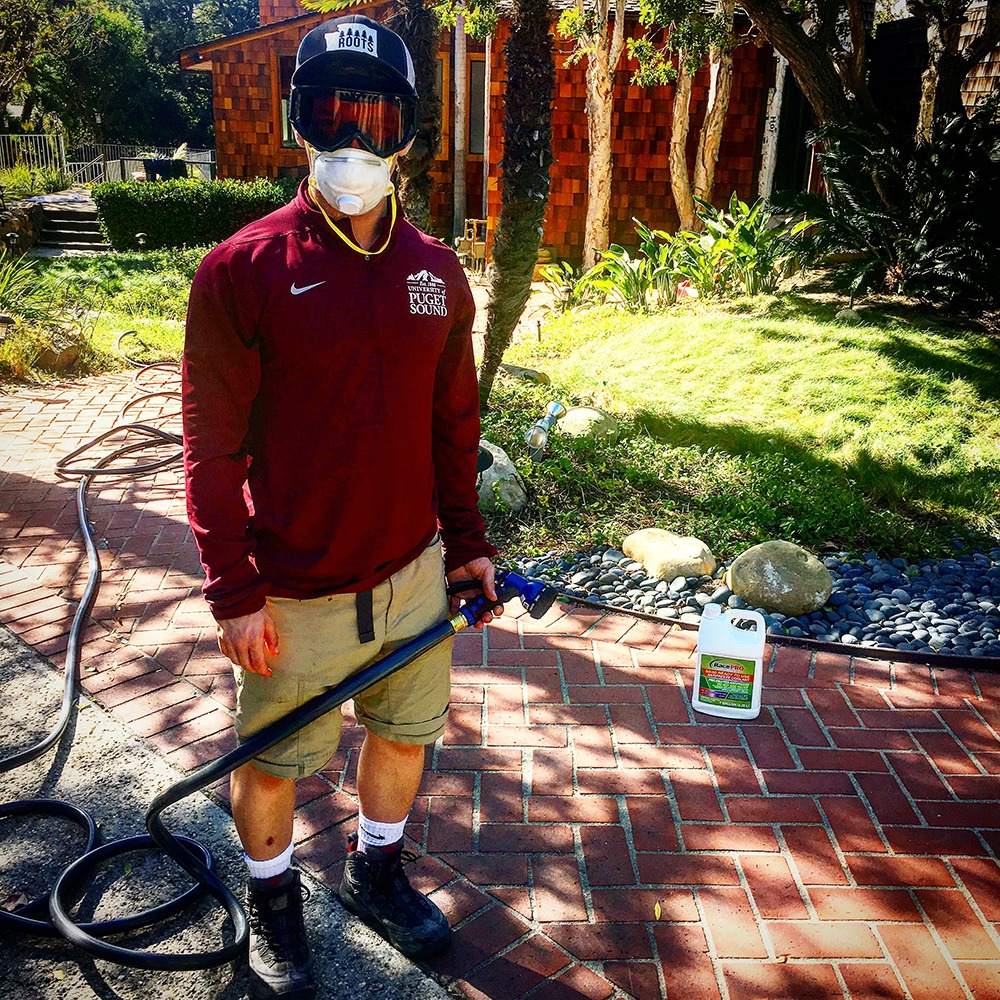
“There were all these agencies not talking to each other” the sheriff’s volunteer continued, “and not getting anywhere.
“I’m a Malibu resident, and for days people were asking which houses were standing and which were not. As I drove around on patrol, I tried to answer as many people as I could, but the city itself did nothing in this regard,” the volunteer explained.
“But I’ll tell you what bothered me the most,” the volunteer stated. “During the entire event we had an office at Malibu City Hall. There was never a time city hall didn’t have electricity, internet, water and bathrooms. Land lines were working – why weren’t those doors flung open? Where was our mayor? Where was Sheila Kuehl? Where was our city manager? I don’t care what they say but there is no substitute for being fully onsite. There was a news trucks and media on every corner. But no city mayor, no head of emergency services, no city manager. It was complete radio silence from the city – and there should have been news hourly from the city – like what the community got from Cece and The Local,” the volunteer added.
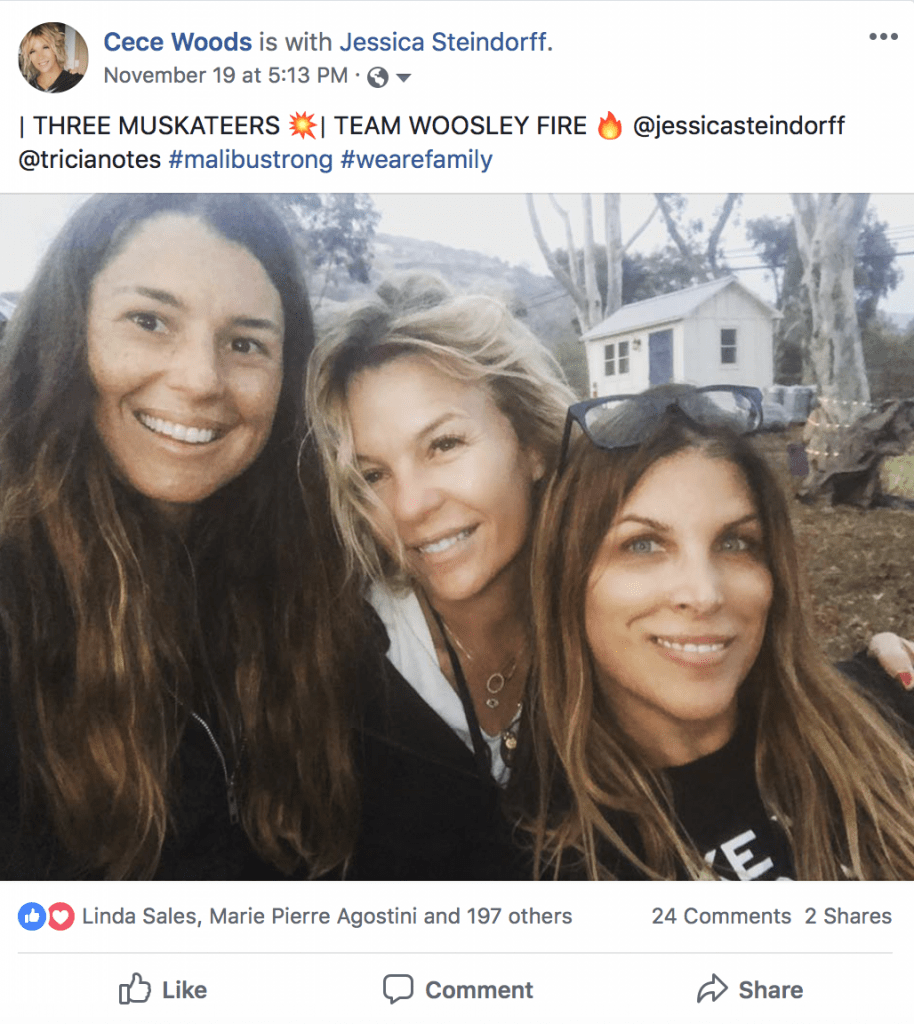
”It was safe enough for us, if our leaders really cared, they would have been there,” the volunteer concluded. “No excuses.”
Then came the call from Skylar. Reva would meet at City Hall.
Skylar walked me down the hall to the meetings, and suddenly I saw the appeal of being a council member. In the modern, sleek offices, being a councilman was very much a role where as you walked past the various desks, there were murmurs of quiet respect.
We entered a conference room, myself, Skylar, Reva and an assistant.
“We were in the middle of a perfect disaster storm, beginning on Monday of that week,” Reva began, seeming as if she had prepared the statement and narrative, but leaving me a bit confused. Monday, I thought, the fire was pretty much over by then? Huh? As she continued, I got more confused, “There was a sheriff captain with a medical emergency and we were dealing with a new guy on Monday,” she continued, and now I was baffled.
“The next day we had an election, which was very demanding on our whole staff. And there was the shooting where a Pepperdine student was lost along with others and we and Lost Hills Sheriff Department were responding to that. So we were very stressed and had been working long days.”
What, I thought?
“Then I got the call about 5 am from Skylar about the fire,” she continued.
In other words, her narrative was that the week leading up to the fire was demanding and stressful, and the initially tepid response by the city was due to the busy, difficult week before, though candidly I failed to see how a new sheriff, a shooting outside of Malibu and doing the normal job of a city of holding an election, as done annually, could be used as an excuse for the city’s response. But that was her case, seconded by Skylar.
Next, came the description of the size, speed and scope of the fire, and how it was unprecedented and this was the real root cause of whatever shortcomings that ensued. I had heard this before.
Followed by praise. Of themselves.
“Hey, there were 60,000 houses in the fire zone,” Reva stated, expanding her prevue well outside of Malibu, “and only 1600 were lost, so people should be praised for that.”
In terms of the evacuation snafu, neither she nor Skylar saw it that way. “The evacuation worked,” said Peak. “Look, nobody died on the highway.”
“I will continually say that not one person died,” added Reva. “That’s a very good success, especially considering what happened at the Paradise fire.”
When asked about how close a disaster came, as the fire chief had said it was “potentially a highway of death,” both countered that it didn’t’ happen so what was the issue?
Now, both Reva and Skylar emphasized that the City of Malibu “Doesn’t have prevue over the sheriff department, fire department, Cal Fire or any other first responder.”
As to why they evacuated and didn’t manage the fire onsite, as a nearby city did, Reva explained, “We were given evacuation orders and we followed them, which is our protocol and the proper thing to do. We don’t question the fire department and police department when they issue orders.”
She refuted comments that the city didn’t do much to open all lanes going south. “CHP is responsible, they direct traffic. We were actively trying to get lanes open.” She did add, “OK, decisions were not made quickly enough, even though we had planned for something like this, if not this exactly”
“We sit and do these exercises and plan for scenarios like this,” she added, “and not one person died in the city,” she repeated.
Regarding the issue of Pepperdine, and the allocation of resources over Malibu, her only comment was “That’s not a city conversation. Talk to the fire department, I don’t know about taking a stand in that particular location.” Technically correct, if not legally, but sure seems like a dodge given Pepperdine’s proximity essentially within Malibu, and her previous concern over the tragic shooting event that took place there and the fact that the diversion to Pepperdine over Malibu residences may have cost many families – her actual constituency – their homes. Neither she or Sklyar would comment further or address any other question in this regard.
We had a limited window for this conversation, so I asked about why the city didn’t come more to the aid of the citizens who had stayed behind. Both she and Skylar were clear on this.
“Look at it this way,” she began. “We have 13,000 people in Malibu, all paying taxes and many who left were now paying for their hotels and other expenses. The 1,000 or so who decided to stay behind, they now want the city to come take care of them? That’s simply not fair.”
Skylar added, “It’s ridiculous to think that if there’s not going to be electricity or water you should stay in your home unless you’re prepared to survive on your own. If you can’t handle your own survival, you could consider leaving.”
“We did provide food and water to animals at Zuma for the first two days,” Reva added. “But after that people were on their own. After that, we did not feel it was our obligation to bring in further supplies after that. People were on their own as far as we were concerned. People who chose to remain need to take responsibility for their safety, and our focus after that was repopulation, which is actually more complex than many people understand as we’re talking about leasing land and making many other arrangements.”
“Yes there were some issues,” she concluded, “We have to change things in our plans to do things better, that’s my takeaway, but overall I think the city did a great job.”
And with that, she hurried off to another meeting.
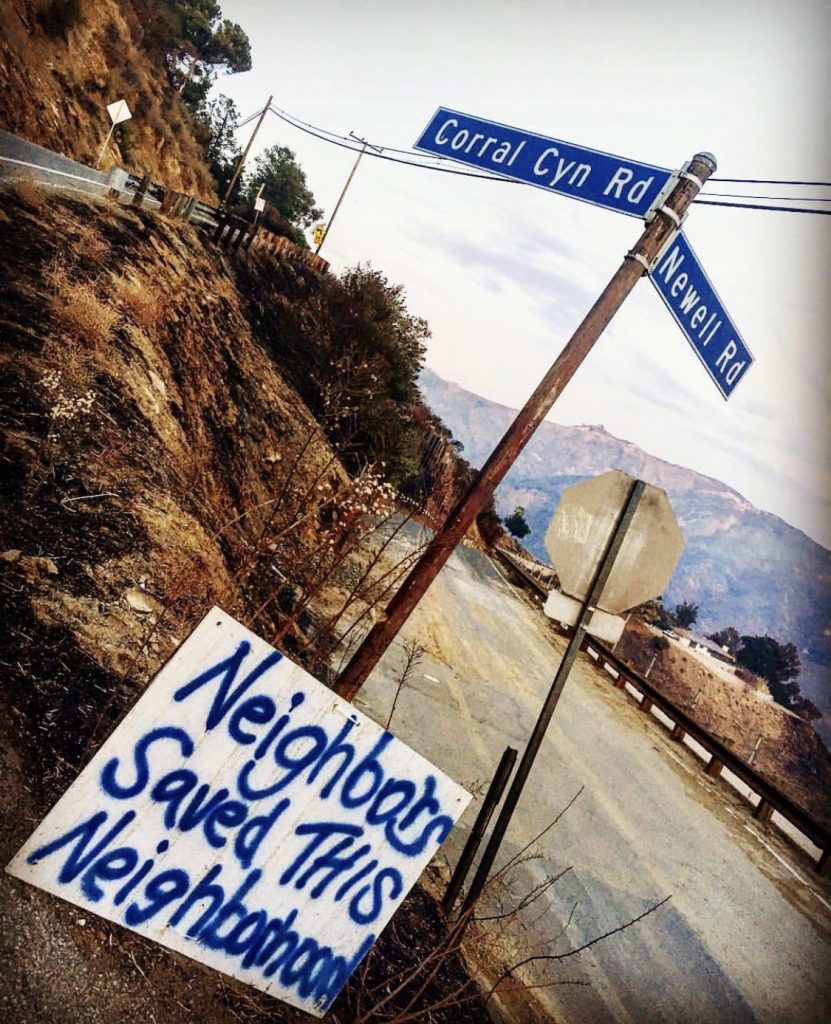
Here’s my conclusion. The city actually had a fairly low-bar to hit to handle this successfully. They are not the fire department or the sheriff’s department. During a crisis they actually have very little to do — just let people know what’s going on — and given that somewhere around 1,000+ people stayed behind, bringing a little relief in some trucks would not have been that difficult or expensive, even if meant bending some rules a tad.
But under pressure, a city manager who has a conservative bureaucratic, by-the-book orientation, a mayor who not only had a conflict of interest but was a hypocrite over evacuation, and city council members who didn’t know how to react, it was all just bungled. With a huge swath of your population staying behind, city hall could have easily been manned, and the much needed communication, which totally broke down, could have been addressed.
Cece Woods is a force of nature, but her efforts of letting people know what was going on could have easily been handled by the city if someone had simply driven up to Malibu on a regular basis and done basic reporting. And maybe the intervention of the city government on behalf of its constituency might have led to a different outcome at Pepperdine, or least the dignity of having tried.
Yes, the fire department and sheriff department might have objected to a relief effort, to manning city hall during an evacuation, to confronting them on access and repopulation, but no one would have gone to jail.
The shortcoming was not criminal malfeasance. It was insensitivity and ineptitude. Poor planning along with being overwhelmed by the magnitude of the event.
But, simply, if the city had responded in some kind of supporting, understanding way to the citizens, some quite brave, who stayed behind and not only saved their homes but the homes of neighbors who surrounded them, addressed the need for information that wasn’t provided, acknowledged the desire for people to return to their homes, our Malibu city government today might still have what is needed to effectively govern: the good faith that comes from credibility and respect.

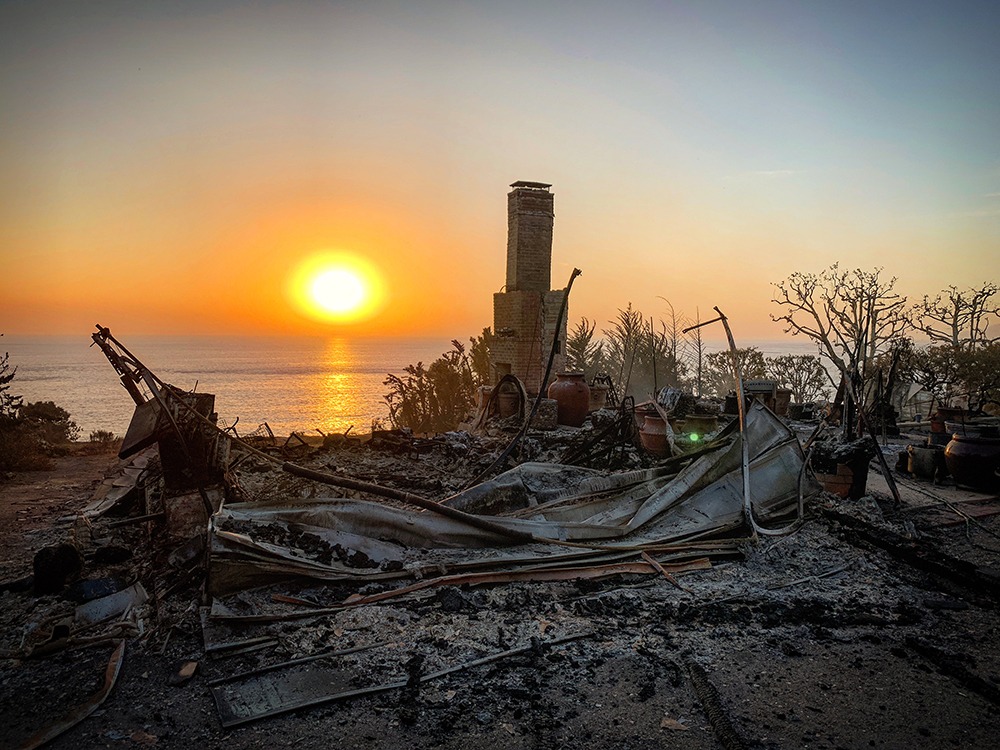

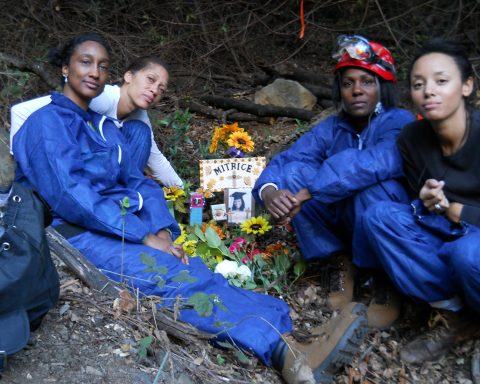
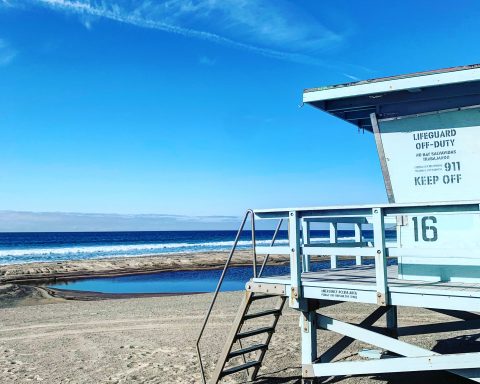


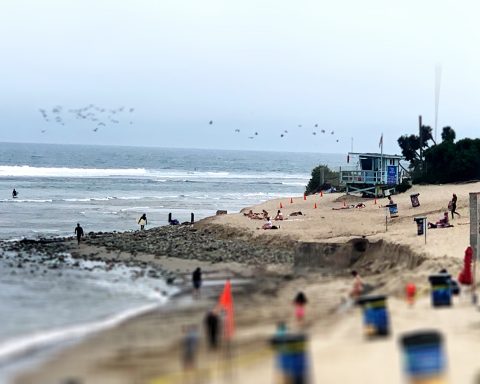
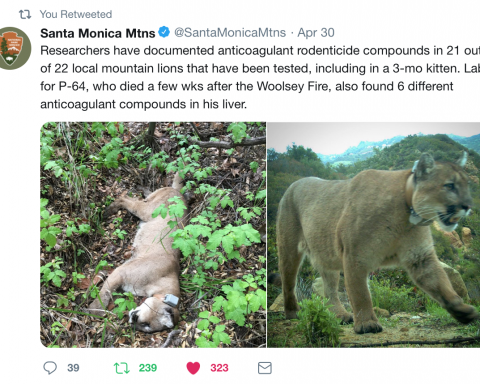
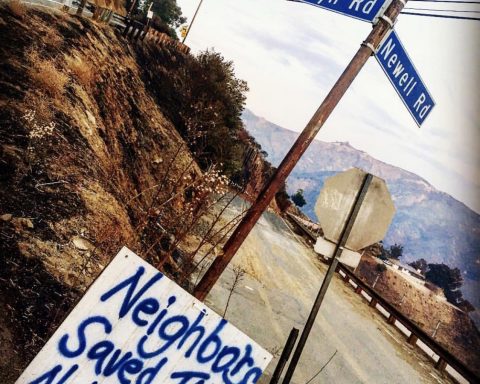
Follow Us